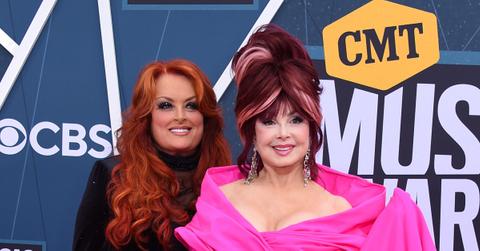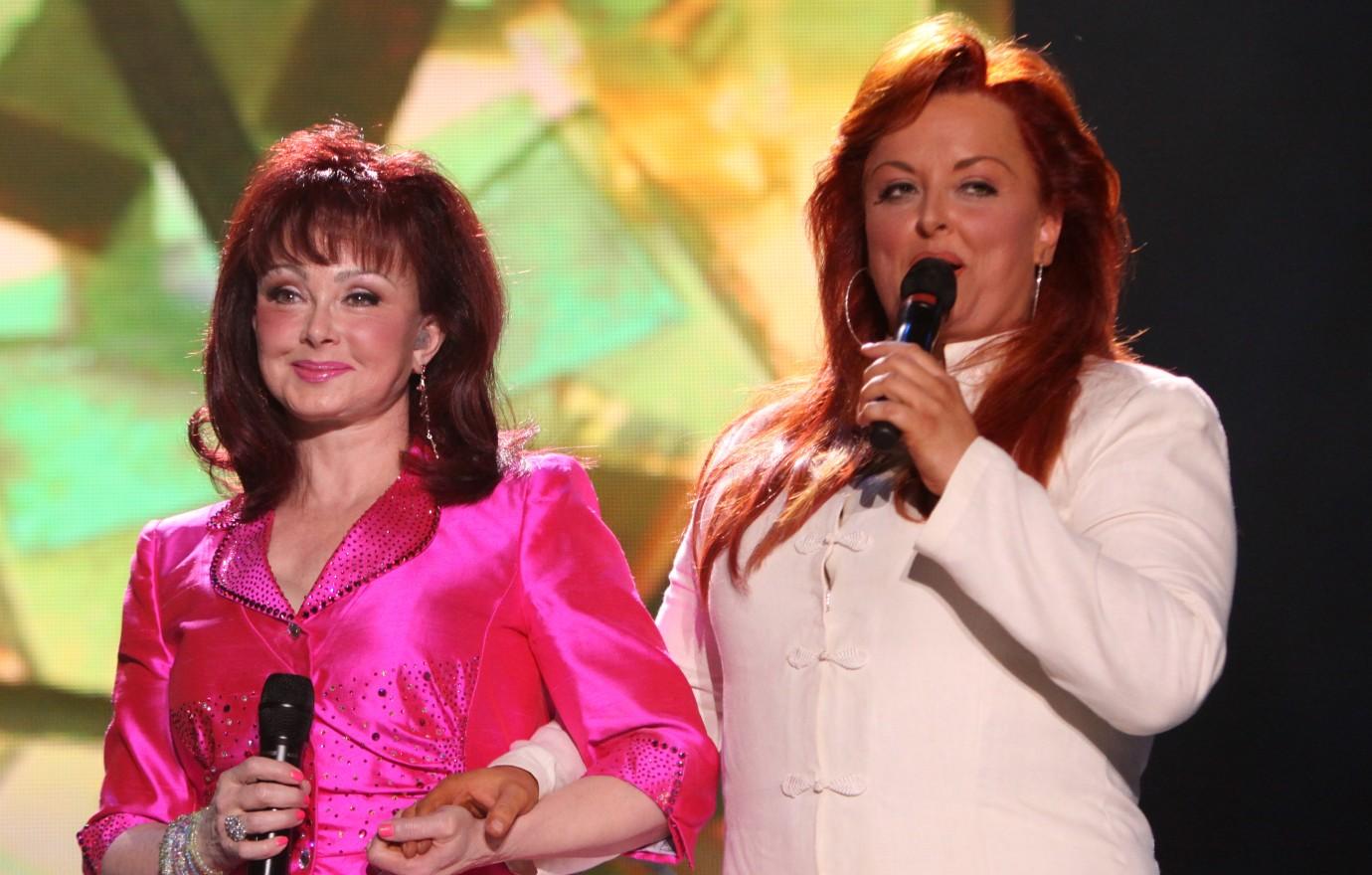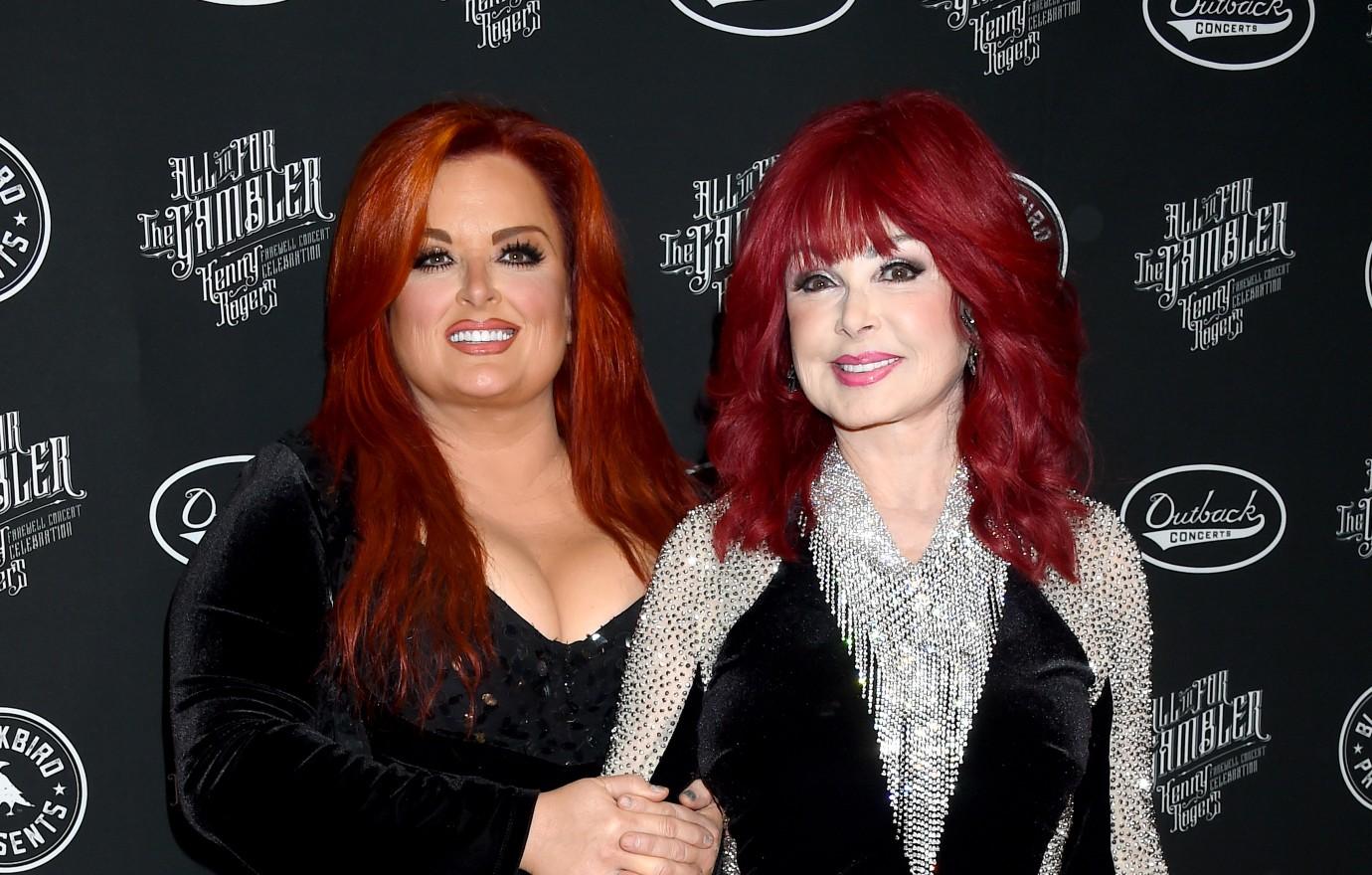 NEWS
NEWS'She Was Determined To Die': Wynonna Judd Discusses How Late Mom Naomi Was 'So Strong Yet So Vulnerable'

Wynonna Judd is continuing to candidly discuss her mom Naomi Judd's lifelong mental health struggles and death.
"I've accepted it as much as I possibly, humanly can," she shared of her mom's suicide, which occurred in April. "Acceptance and then surrender, and what comes after is finding meaning."

The late country superstar dealt with bipolar disorder, PTSD and depression for decades before she took her own life at age 76, dying of a gunshot wound. And though Wynonna was aware of her mom's troubles, her sudden death is still a tough pill to swallow.
"I can't quite wrap my head around it and I don't know that I ever will. That she left the way she did," she confessed. "That's how baffling and cunning mental illness is. You have to make peace with the fact that you don't know. Sometimes there are no answers."

- Naomi Judd's Suicide Prompted By Singing Struggles: 'She Started Losing Her Voice 10 Years Ago'
- Wynonna Judd Admits She Still Talks To Late Mom Naomi Judd, Calls It 'Devastatingly Beautiful' To Perform Their Duets Alone
- Wynonna Judd Speaks Out About Coping With Mother Naomi's Passing After Suicide Note Controversy: 'It's So Heavy'
Want OK! each day? Sign up here!
The star said the matriarch "was always so determined" to achieve her goals, noting she raised "two babies by herself on welfare and food stamps."
COURT AGREES TO SEAL GRAPHIC DETAILS & PHOTOS OF COUNTRY STAR NAOMI JUDD'S TRAGIC SUICIDE
"She never gave up. So think about that and apply it to every stinking part of life, including death. With the same determination she had to live, she was determined to die," Wynonna acknowledged. "It's so hard to comprehend how someone can be so strong and yet so vulnerable."
Powered by RedCircle
The mom-of-two has been keeping Naomi's legacy alive by going through with their planned joint tour, where Wynonna provides fans with mental health resources and materials.
"We’re committed to raising awareness about the walk with mental illness and reducing shame and stigma, guiding people towards resources, and helping families build resistance to and resilience from the devastation," she explained. "This is very real to me. This is not just show business. This is an opportunity to help someone out there not end their life. We must get rid of the stigma of the words mental illness because people will not reach out for help."
Judd opened up to PEOPLE.

